Listen Up: 7 House Sounds That Are Screaming for Your Attention (Guide)
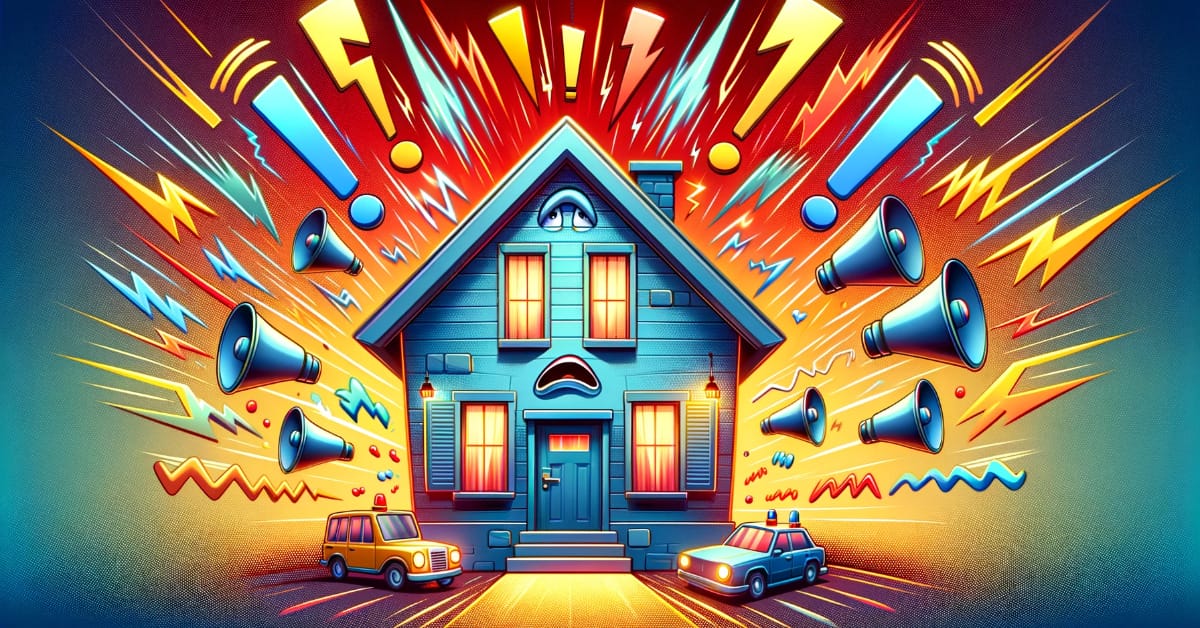
Houses are always talking, from the creaking floorboards to the humming of the refrigerator in the kitchen.
Most of the time, we tune out these familiar sounds, dismissing them as harmless background noise. But what if I told you that some of these noises might indicate something more serious?
What I will cover:
🐍 Hissing Noises
🐾 Wall Creaks & Skittering
💦 Running Water
🔌 Electrical Humming/Buzzing
🔨 Banging/Thumping Pipes
🥁 Repetitive Thumping
💥 Loud Bangs/Explosions
I’ll guide you through seven specific house sounds you should never ignore. We’ll learn how to listen to what our homes are trying to tell us.
Analyzing House Sounds You Shouldn’t Ignore
It’s important to remember that our homes often make unexpected sounds, but not all warrant worry or immediate attention. Focus on the unusual ones that signal a retort to your home’s regular rhythm.
1. Hissing Noises
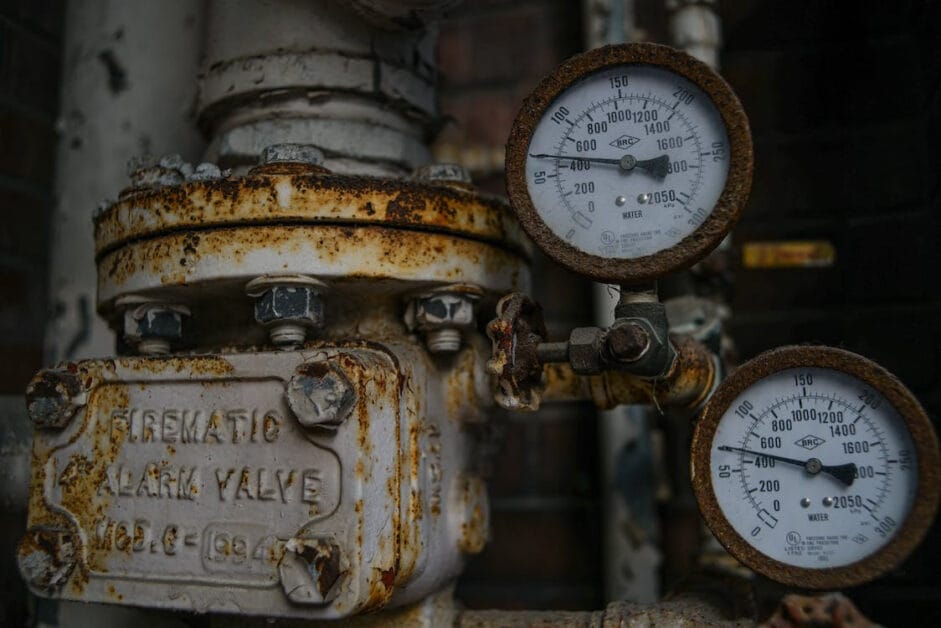
To kick things off, we’ll start with a noise bound to get your attention – a hissing sound. This could be a major telltale sign if your home is gas-fitted.
Hissing around the gas meter or your home’s outdoor gas post isn’t simply a spooky sound effect; it could indicate a gas leak. While you’ll often also smell gas in the event of such a leak, let’s prioritize our senses – if you hear this, do not ignore it.
Take everyone outdoors and dial up your local gas company immediately. They’ve been trained to handle this sort of situation.
2. Wall Creaks & Skittering in the Walls
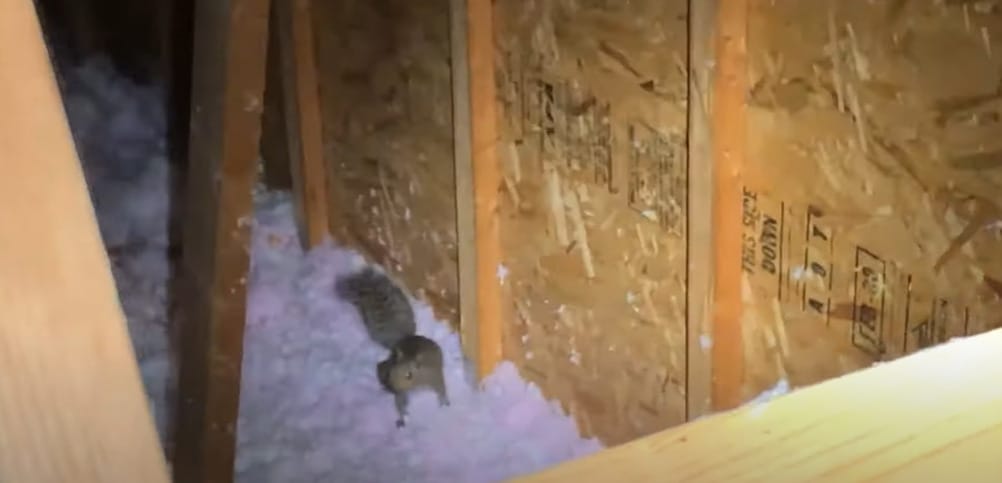
Picture this: It’s quiet and peaceful. Suddenly, you hear the faint noise of something scurrying in your walls. Any sound coming from inside your walls can be a cause for concern.
Unexpected house guests such as mice, squirrels, birds, and the dreaded rats could be the reason behind these unusual noises. These uninvited critters can nibble at your home’s structure, causing significant damage.
These creatures find comfort in building nests within comfortable, cozy spaces such as your attic, basement, and crawl spaces to lay their eggs and increase their numbers rapidly.
Dealing with these unwanted guests should be done promptly and carefully.
- First, look around your house’s exterior for any obvious signs. If there are no obvious signs, but you still hear the noises, it’s a smart move to step up your game.
- Take the initiative to call animal control or set traps to ensure that these pests don’t make your house their permanent residence.
3. Running Water

Have you ever found yourself at home, all alone, everything’s quiet, and then you hear that unmistakable sound of running water, but no one’s using the bathroom or the kitchen?
Well, there’s a good chance you’ve got a busted pipe, a leaking faucet, or even an overflowing toilet. Ignoring this sound could result in extensive water damage.
If you can’t identify and fix the source, don’t hesitate to call a professional plumber. The last thing you want is a mini indoor flood wrecking your peaceful home.
Moreover, continuous water rushing through your pipes can hint at a leak somewhere in your home. Onto your rooftop and see if there are any damaged or missing shingles, another potential cause for that problematic sound of running water.
4. Electrical Humming or Buzzing Noises
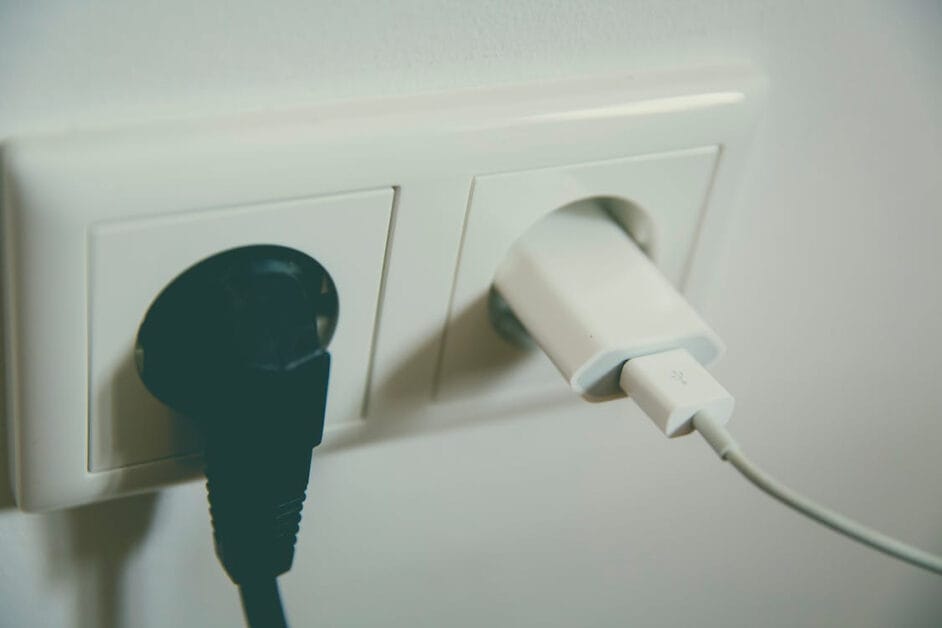
Is your house haunted if there’s a buzzing sound? Probably not, but it may point to something uncanny! A persistent, distinctive buzzing from a device could suggest a faulty electrical socket. My advice? Get a pro to check the outlet and rectify the situation.
Folks often assume a slight humming or buzzing from LED lights and dimmers to be normal. Well, it’s not! Yes, you heard me right — a well-installed, compatible power supply and dimmer shouldn’t produce any sound. Don’t shrug it off as a mere annoyance. Heed my advice: don’t gamble with electricity and call in an expert.
Humming or buzzing noises could also suggest loose wiring. If a humming light is connected to a dimmer switch, or if the switch itself vibrates with a hum, swap the bulb for a different type or try a bulb from a different manufacturer.
5. Banging or Thumping Pipes
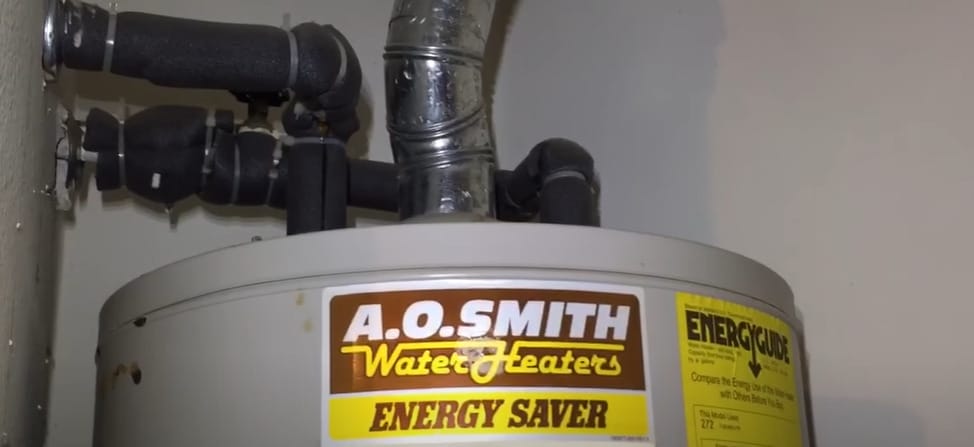
Loud banging is the repercussion of high water pressure in your pipes, seeking an exit when the faucet gets switched off. An immediate solution is to shut off the main water supply and release the faucets to reset the air chamber in the water system.
Sediment buildup in your water heater can also lead to banging sounds. It happens when steam bubbles dodge their way out through the sediment layer on the tank’s bottom. Regularly flushing your water heater and cleaning its filter is a smart way to prevent this.
It may sound like a Halloween prank, but loud humming or clanking often signals your pipes’ unsettling cases of hydraulic shock. This term is when water flowing through pipes halts or alters direction without warning. This abrupt change can loosen or even damage your plumbing joints, leading to potential long-term damage.
6. Repetitive Thumping or Vibrating Noises
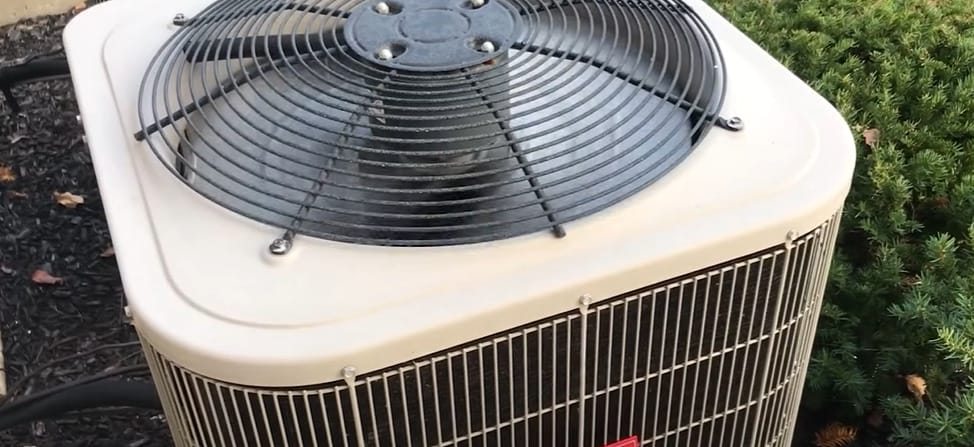
It’s crucial to understand that constant thumping or vibrating noises shouldn’t be ignored when dealing with home-related sounds. These are sure signs that there’s something amiss in your home.
An HVAC system in perfect working order is a silent partner in your comfort. But you might face a severe issue if your equipment starts producing sharp metallic clangs or hard thumping sounds.
Such noise potentially indicates a malfunctioning motor or, worse still, a degenerate HVAC system. Besides potential fire hazards, HVAC system malfunctions can also hit your pocket with expensive repair or replacement costs.
Another commonplace experience with persistent thumping noises is during clothes washing. Occasional thumping is typical, but if your washing machine creates consistent, intense thumping, it’s high time you checked it. Failing to do so might soon result in an oversized, non-functional paperweight.
7. Loud Bangs or Explosions from Appliances

When the quiet of your home is shattered by a loud bang or what sounds like a mini-explosion, it’s more than just startling—it’s a clarion call to action.
When you swing over to the kitchen, your oven can be a source of alarming bangs. If you hear a loud bang when you turn on the oven, it’s not gearing up to launch into space—it could be a delayed ignition.
Gas builds up when the oven fails to light promptly, and when it finally ignites, it does so with a bang. This isn’t just noisy; it’s downright dangerous.
The solution here isn’t a DIY fix; it’s a professional’s job. A qualified technician can get to the root of the problem, from cleaning the burner to replacing faulty components.
Cost Comparison: The Price of Neglect vs. The Savings of Routine Maintenance
Addressing the odd noises around your home can be a real penny-saver. Let’s break it down to brass tacks with some cost estimates, showing why it pays to be proactive:
| Issue | Cost of Ignoring | Cost of Maintenance |
|---|---|---|
| HVAC System Breakdown | $5,000 – $10,000 | $150 – $300 annually |
| Refrigerator Compressor Failure | $1,000 – $2,000 | $100 – $200 per service |
| Water Damage from Clogged Gutters | $1,000 – $4,000 | $150 – $250 for cleaning |
| Roof Repair or Replacement | $5,000 – $25,000 | Free to low cost if bundled with other services |
| Fixing Burst Pipes | $1,000 – $4,000 | $250 – $500 for inspection |
| Increased Energy Bills from Drafts | Increase of 10% – 25% in energy bills | $200 – $600 for sealing |
| Major Foundation Repairs | $10,000+ | Less than $500 for inspection |
Preventive Maintenance To Keep Your House Quiet And Safe
Observing some simple preventive maintenance can help maintain your house. It can assist you in keeping it safe and quiet.
- HVAC Harmony: Keep your HVAC system working by regularly replacing filters, cleaning out ducts, and scheduling annual check-ups before the seasons change. This ensures efficiency and can prevent alarming clanks and hums that can disrupt your peace.
- Appliance Check-Ups: Treat your appliances equally like you’d look after a classic car. Inspect them for any signs of wear, like frayed cords or unusual sounds. Don’t ignore the small stuff; a quick fix can save a costly replacement later.
- Gutter Gut Check: Keep those gutters clean! It’s not just about avoiding the drip-drop of a clogged gutter; it’s also about protecting your home from water damage. Ensure they’re clear of leaves and debris, especially before heavy rains occur.
- Roof Rundown: Glance at your roof every now and then. Missing shingles or tiles can lead to leaks, which means water in places it shouldn’t be. Keep an eye out after big storms or high winds—replacing a few shingles is easier than dealing with a leaky ceiling.
- Plumbing Patrol: Don’t let leaks sneak up on you. Make a habit of inspecting under sinks and toilets for any signs of moisture. Check your water heater for corrosion or any signs of leakage. Catching a small drip early can prevent a flood of problems later on.
- Seal and Save: Drafty windows and doors aren’t just comfort killers but energy vampires. Seal up any drafts with caulking or weather stripping. It’s a simple fix that can save on your energy bills and keep out unwanted noise.
- Foundation Fundamentals: Cracks or unusual shifts in your foundation can lead to major structural issues. Watch for any significant changes and address them before they grow into bigger problems.
Frequently Asked Questions
- Does A Single Loud Bang Mean Trouble?
- One-off noises can be benign, like a door slamming from a draft. But if it’s coming from an appliance or your heating system, you’d be wise to investigate further. For instance, a single loud bang from a boiler or furnace could indicate a serious issue.
- Can Floor Creaks Indicate a Structural Problem?
- Old houses talk, and creaky floors are often part of the conversation. It’s usually just wood settling or shifting. However, it’s time for a structural check-up if you notice new, pronounced creaking and visible floor or wall gaps.
- My Ceiling Fan Is Clicking; Should I Be Worried?
- A clicking fan could be simple, like tightening a loose blade. But if the clicking continues after you’ve checked the obvious, it may indicate an electrical issue or a malfunctioning motor. It’s best to address it before the fan becomes a flyaway problem.
- My Toilet Makes a Hissing Noise, What Does That Mean?
- A hissing toilet can signal a faulty flapper or valve—your toilet tells you it’s running more water than it should. Check the tank’s components and consider replacing them if worn out to save water and silence the hiss.
- Why Does My Fireplace Make a Water-Dripping Sound?
- It might seem out of place, but water dripping in a chimney is not unheard of. It could indicate that rainwater or condensation is finding its way inside. Check for a faulty chimney cap or missing mortar and have it sealed to prevent water intrusion.
- There’s a Chirping Sound, But I Don’t Have a Smoke Detector – What Else Could It Be?
- Chirping isn’t just for birds or alarms. If it’s not your smoke detector, it could be a sign of an electrical issue or a critter that’s taken up residence. Investigate the source; if it’s the latter, you might need to call pest control.
References
Organizations:
- The American Society of Home Inspectors (ASHI). https://www.homeinspector.org/
- The National Pest Management Association. https://www.pestworld.org/
Books:
- “The Soundproofing Handbook” by John L. Loeser and Diana Loeser.
- “Home Maintenance For Dummies” by James Carey and Morris Carey.
- “The Complete Guide to Home Inspection” by Michael Litchfield and Roger C. Robinson.
Website Resources:
- This Old House. http://www.thisoldhouse.com/
- The Family Handyman. http://www.familyhandyman.com/
Video References:
SkedaddleWildlife
Word of Advice TV
Green Scene Home Inspections
The Home Depot
